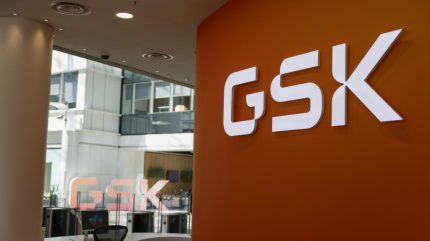
GSK blames political and regulatory pressures for the decline in its vaccine’s business in 2024, as it expects sales to further shrink in 2025.
Despite these challenges, GSK beat Q4 2024 earnings expectations, driven by a strong performance in its HIV and oncology divisions. The company has raised its 2031 revenue target to more than £40bn ($50bn), compared to its previous sales outlook of £38bn ($47.6bn), with plans to focus on specialty medicines to counter challenges with its vaccine portfolio.

Discover B2B Marketing That Performs
Combine business intelligence and editorial excellence to reach engaged professionals across 36 leading media platforms.
Overall vaccine sales declined by 4% in 2024. Shingrix, GSK’s shingles vaccine, saw a modest 1% increase in sales, while sales for its respiratory syncytial virus (RSV) vaccine Arexvy dropped by 51%. CEO Emma Walmsley acknowledged the ongoing external pressures affecting vaccine sales in an earnings call, particularly in the US and China.
“In the short term, given the challenging China macro environment and the potential for changes to US vaccination policies and uptake in the next 12 to 18 months, we’re expecting vaccine sales to decrease [to] low single digit percent in 2025,” said Luke Miels GSK CCO during the Q4 earnings call.
Walmsley had previously noted the potential implications of a changing environment in the US back in November 2024 after the country’s election results, while adopting a “wait and see” approach taken by many at the time. She had also emphasised the importance of the US market for GSK given that more than half of its business was in the country.
GSK’s vaccine sales in China reflect broader pressures facing multinational pharma firms in the Chinese market. In December 2024, GSK’s Chinese distribution deal for Shingrix with Chongqing Zhifei Biological Products was significantly restructured. Initially, Zhifei had committed to purchasing at least 20.6bn yuan ($2.83bn) worth of Shingrix between 2024 and 2026. However, in December, the companies extended the contract to 11 years but reduced annual volumes, with Zhifei now set to purchase 21.6bn yuan ($2.97bn) worth of the vaccine over six years.

US Tariffs are shifting - will you react or anticipate?
Don’t let policy changes catch you off guard. Stay proactive with real-time data and expert analysis.
By GlobalDataThe revision follows a sharp downturn in China’s vaccine market, highlighted by MSD’s sudden decline in sales of its human papillomavirus (HPV) vaccine Gardasil. Once a key growth driver, Gardasil’s Chinese sales fell unexpectedly in 2024. MSD attributed the slump to broader market headwinds rather than company-specific issues, citing price competition from local manufacturers and China’s ongoing anti-corruption crackdown on hospitals and the health sector. Yesterday (4 February), MSD announced that it is pausing Gardasil China sales until at least mid-2025 due to weak discretionary spending, contributing to an 11% drop in MSD’s share price.
Despite the challenges, Walmsley said that GSK “remains ambitious” about the long-term opportunity for Shingrix in China, but acknowledged the need to work through the current macro pressures in the short term.
Changes in US vaccine environment
GSK’s RSV vaccine Arexvy faced a significant decline in sales in 2024, generating £590m ($739m), down more than 50% from the previous year. The company attributed the decline to updated recommendations from the US Advisory Committee on Immunization Practices (ACIP), the timing of the RSV season, and “an unfavourable comparison to launch stocking in 2023,” said Miels.
GlobalData analysts have raised concerns about potential further regulatory shifts, particularly in the light of the possible appointment of Robert F Kennedy (RFK) Jr. as US Secretary of Health and Human Services (HHS). RFK has been a vocal critic of the pharmaceutical industry, and his history of vaccine scepticism has raised questions about the potential impact on the sector. On 4 February, the US Senate finance committee voted to approve his nomination, moving him closer to confirmation in a full Senate vote expected in the coming days.
Despite this, Walmsley said she was encouraged by some of RFK’s recent statements during senate hearings, including his recognition of the value of vaccines and that his own children were vaccinated.
“It was good to hear that… in the discussions with Senator Cassidy, the CDC [Centers for Disease Control and Prevention] vaccine guidance and the ACIP should remain unchanged. Let’s see how this plays out. We’ll all know a lot more through 2025 and look forward to some of the speculation being settled here,” Walmsley said.


